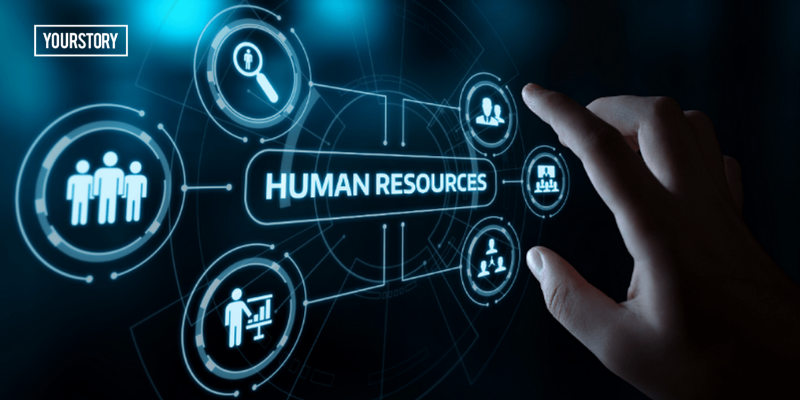5 emerging HR trends to watch in 2022
As the world moves from a remote to a hybrid work model, human resource teams can leverage new technologies to improve employee engagement.
The COVID-19 pandemic has transformed every business sector and the way people work. The adoption of technology and its constant development has also accelerated the process of adapting and coming up with new practices in HR management and the recruitment process. From remote working to having a blended workforce in offices, the HR industry is witnessing trends that are considerably different from 2020.
Largely impacted by the exacerbating effects of COVID-19, HR managers and teams were put at the forefront to ensure business continuity while boosting employees’ morale.
Many enterprises including SMBs and large-scale organisations intended to cut their expenses and laid-off employees. While the other forward-moving companies invested heavily in building a robust IT infrastructure.
According to recent data – 90 percent of HR executives will keep or grow their IT investments. It is crucial to know the emerging trends that are going to drive the HR sector in 2022 and how they are going to be different than the trends watched out in 2020 – 2021.
Adaptation to hybrid work culture
Remote work culture has posed to be a necessity for organisations during the pandemic. It is still going to stay relevant to the market for long but accompanied by a blended workforce.
As the market is moving on its recovery path and offices are opening, the organisations are coming up with their own unique hybrid work models having both sets of employees working from home and office.
The hybrid work culture is going to find its relevance in 2022 to get the best of employees while ensuring their physical and mental wellbeing.
Initiatives for diversity and inclusion
Creating a sense of belongingness at the workplace is imperative for employees’ motivation. Diversity and Inclusion are crucial; however, they are more than drafting policies and programmes. It earns deeper commitment from employees when implemented on the ground level.
It is very common to witness that organisations embracing diversity in the workplace are likely to outperform their peers in the industry.
According to a recent analysis – companies having more than 30 percent of women executives are likely to outperform the companies with 10 to 30 percent of women executives. It is anticipated that companies will have leadership accountability and capabilities for diversity and inclusion in 2022. In addition, there will be more space for equality of opportunity and openness to tackle microaggressions.
Technology in HR management and recruitment
The concept of remote working, interviewing and hiring and made HR managers and job seekers leverage the use of new-age digital tools. Many organisations have started using technology, especially Artificial Intelligence (AI) as an integral part of their daily tasks.
Additionally, HR managers are leveraging AI to screen the resumes of candidates, making the entire recruitment and hiring process more sophisticated.
Apart from its role in hiring, AI has automated some tedious tasks that were carried out manually. Thus, organisations will be seen investing more in AI to help employees focus on more meaningful work and boost their productivity.
Reskilling and upskilling
Considering the competitive landscape, organisations need greater transparency, agility and resilience at the workplace. Additionally, the outbreak of COVID-19 has accelerated the transition to automation that requires a specialised skill set in the workforce to adapt to a digitally driven world.
Moving ahead in 2022 will require two big changes in corporate organisations – reskilling and upskilling. Reskilling – in which the staff is provided with adequate training to develop capabilities to take entirely different and new roles, upskilling – in which the staff gains new skills to augment their current role in the organisation.
Focus on improving employee experience
Employee experience is the crux of what an employee goes through during their employment lifecycle. A positive employee experience starts from job satisfaction to keep them highly motivated for work. It is imperative as a disengaged workforce can cost a huge amount to companies as a consequence of low productivity, profitability and increased absences at work.
On the other hand, an engaged workforce is highly productive and brings the advantage of improved business outcomes and retention rates. Thus, the organisations will focus more on ensuring enhanced employee experience to navigate through uncertainty and ambiguity in the future.
Moving forward
Everything is revolving around technology and so does the HR sector. Considering the pace and number of organisations that have adopted a hybrid work approach, HR departments will need to allocate a budget entirely for developing an advanced technology infrastructure. This will accelerate work and cultural transformation in 2022 and result in better profit outcomes.
Edited by Affirunisa Kankudti
(Disclaimer: The views and opinions expressed in this article are those of the author and do not necessarily reflect the views of YourStory.)










![[Startup Bharat] How Malabar Angel Network is boosting North Kerala’s startup ecosystem](https://images.yourstory.com/cs/2/79900dd0d91311e8a16045a90309d734/MANBuilding1574227798889jpg)

